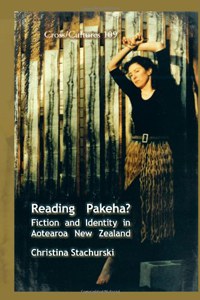An implied reader’s reading? – A reception-oriented analysis of New Zealand identities
DOI:
https://doi.org/10.22029/ko.2010.520Abstract
Christina Stachurski is an award-winning playwright and theatre director teaching modern drama and creative writing at Canterbury University. Reading Pakeha? is based on her doctoral thesis and is her first book-length foray into the field of fictional analysis. By combining Iser’s theory of implied readership with an author- and reception-centred approach, Stachurski studies the role of fictional representations in the shaping of New Zealand identities over various decades. More precisely, she tries to deduce through (con)textual analysis general reader responses to three canonical New Zealand novels published between 1939 and 1990. Stachurski successively analyses these works of fiction by comparing them with each other and with other New Zealand novels (and feature films) of the period as well as the settler/societal contexts of Australia and Canada. In so doing, she identifies the wide range of readerships these novels cater to while tracing changes to the understanding of the term ‘Pakeha’ over time.

Downloads
Veröffentlicht
Ausgabe
Rubrik
Lizenz
Alle Beiträge (nicht die Buchcover) in KULT_online seit der 50. Ausgabe erscheinen unter der Lizenz Creative Commons Namensnennung 4.0. Die veröffentlichten Beiträge dürfen Sie unter den Bedingungen der Lizenz frei nutzen, insbesondere auch für kommerzielle Zwecke und durch Bearbeitung der Beiträge (allgemeinverständliche Fassung). Die Autor_innen von KULT_online haben der Zeitschrift die Veröffentlichung erlaubt und ihre Texte unter einer CC-BY-Lizenz veröffentlicht. Es findet keine exklusive Übertragung von Verwertungsrechten („copyright transfer“) an die Zeitschrift statt. Für die Buchcover gelten die urheberrechtlichen Bestimmungen des Verlages, bitte kontaktieren Sie das Verlagshaus für jede rechtmäßige Weiternutzung. Alle Beiträge der Ausgaben 1-49 sind online frei zugänglich und unterliegen den Nutzungsbeschränkungen gemäß des deutschen Urheberrechts



